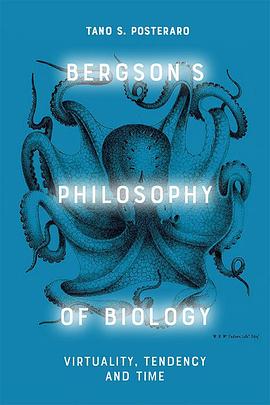
Virtuality, Tendency and Time
Tano S. Posteraro
overview
Reconstructs Bergson’s philosophy of biology in dialogue with the life sciences of today
Critically reappraises Bergson’s evolutionary metaphysics
Includes summaries, interpretations and evaluations of Bergson’s various engagements with evolutionary theory
Provides a counterpoint to the traditional understanding of Bergson as a phenomenologist
Offers a critical rejoinder to Bergson's reputation as a metaphysical vitalist by bringing his work into dialogue with arguments and issues in the philosophy of science
Makes a strong case for Bergson’s interdisciplinary relevance outside of the typical fields of philosophy, literature and the arts
We are in the midst of a return to Henri Bergson – the French philosopher whose influence touches the fields of continental philosophy, literary theory and art theory. This revival of interest in his work could even be called a full-blown Bergson renaissance. Tano S. Posteraro contributes to this increasingly serious study of Bergson’s philosophy with a tight focus on Bergson’s theory of evolution. He presents an alternative Bergson: not a phenomenologist whose central concern is the conscious experience of lived time or the lived body in time, but a systematic philosopher of biology with a robust, prescient and largely workable evolutionary programme.
contents
Introduction: Between Philosophy and Biology
1. Vitalism, Psychology, and Metaphysics
2. Outline and Overview
1. The Actual: Mechanism, Finalism, Modality
Introduction
1.1. Mechanism
a. Adaptationism
b. Developmental Constraint
1.2. Finalism
a. Inner Purposiveness
b. The Metaphysics of Possibility
i. The Falsity of the Problem
ii. The Retrospective Illusion
1.3. Genetics
a. Development
b. Evolution
Conclusion
2. The Virtual: Instantiation, Implication, Dynamics
Introduction
2.1. Instantiation
a. Images
b. Possibilities
c. Affordances
2.2. Implication
a. Contraction
b. Themes
c. Memory
2.3. Dynamics
a. Invention
b. Affordances
c. Performances
Conclusion
3. A Discourse on Tendency
Introduction
3.1. Intellectual Effort and Élan Vital
3.2. The Development of an Idea
3.3. The Theory of Tendency
3.4. The Modal-Mereological Difference
3.5. Virtuality and the Dispositional Modality
Conclusion
4. Individuality and Organization
Introduction
4.1. Spatialization
a. Isolation
b. Externalization
c. Localization
4.2. Temporalization
a. Individuation
b. Interpenetration
c. Duration
Conclusion
5. Finalism Inverted
Introduction
5.1. Rhythm and Reproduction
5.2. Weismann Redux
5.3. Orthogenesis
5.4. Vitalism in Dispute
a. Entelechy
b. Individuality
5.5. True Finalism
a. Externality
b. Commonality
c. Psychology
Conclusion
6. Canalization and Convergence
Introduction
6.1. Canalization
a. Images for Development
b. Vision and its Apparatus
c. The Inside of Indetermination
6.2. Convergence
a. Definitions
b. Unity and Complementarity
c. Recollection and Return
d. Conservation and Constraint
Conclusion
Concluding Remarks and Future Directions
Bibliography